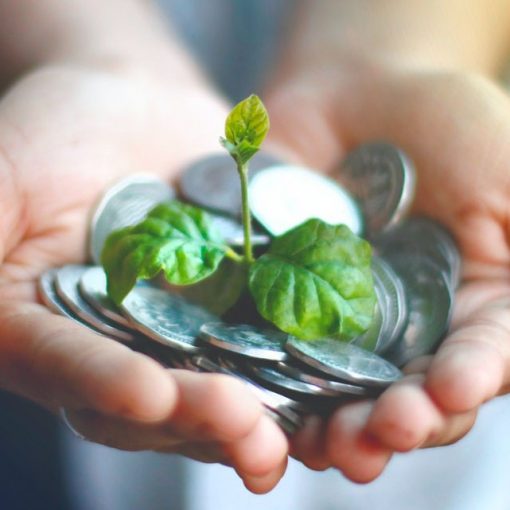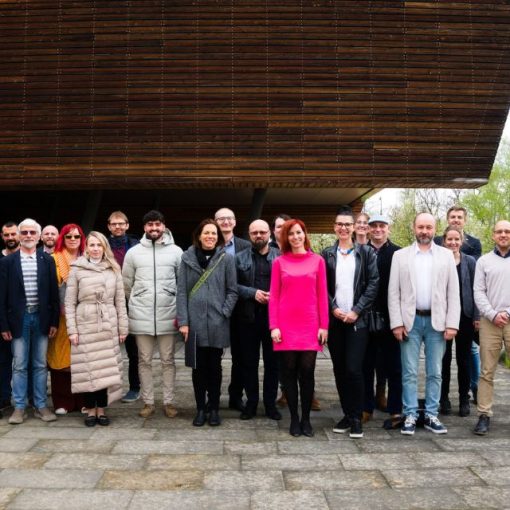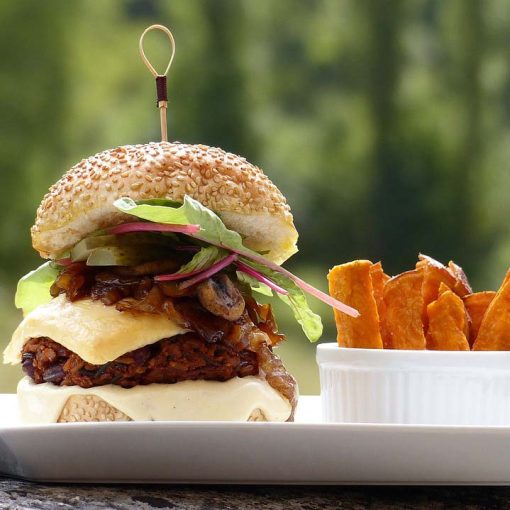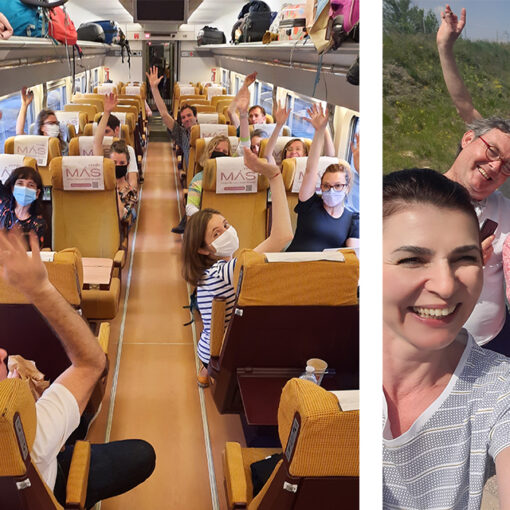The 3rd Interregional Event of the Interreg Europe project CECI – Citizen Involvement in Circular Economy Implementation was originally planned to take place in Ostrava, Czech Republic. Instead, the event host, Moravian-Silesian Innovative Centre, organised a 3-day online CECI marathon on 4-6 November 2020.

DAY 1 – Presenting Ostrava & Workshop 1
The day was opened by Mr Ondřej Dostál, Urban Planning Specialist, who introduced the activities and vision of Ostrava. According to Mr Dostál, Ostrava used to be a heavy industrial city with a focus on coal mining and metallurgy. A lot of transformation and recovery work has been done for the landscape and environment; therefore, Ostrava was one of the 13 cities entering the 2020 European Green Capital competition. Ostrava was virtually presented to the participants in a video.
One of the important projects is fajnOVA – a platform for citizens participation in the development of Ostrava. The purpose of this work is to develop the city for the people who live, study and work here and to fulfil the 2030 vision of “Ostrava is a city for new beginnings !!!”.
In the afternoon, a workshop on creating new circular economy projects (CE) according to local needs was organised by the advisory partner makesense, using the Sensefiction method. A sensefiction is an inspiring social business creation workshop. Its purpose is to raise awareness of social and environmental matters while enabling concrete actions. (makesense 2018.)

Day 2 & 3 – Workshop 2 & Steering Group
Day 2 focused on sharing good practices on citizens involvement in circular economy together with CECI stakeholders. Through Live stream and various video sequences, over 20 participants virtually explored the Moravian-Silesian region and an industrial heritage called Area of lower Vítkovice - a heavy industry factory transformed into a unique concert hall, museums and events and activities complex. Other interesting projects and inspiring activities of Ostrava were showcased via videos.
After that, Workshop 2 on Innovating new approaches of citizens involving took place by using the World Café method. We discussed three topics - Action Plan, Textile waste, and How to support citizen involvement in CE and make their initiative sustainable long term.
Regarding the textile waste, the most popular solutions so far are second-hand shops and charity shops or containers. An idea of adding CO2 emissions information on the receipt arose. Customers would acknowledge the amount of emissions reduced in comparison with purchasing a new garment. Thus, leading into citizens awareness and supporting textile circulation. Also, the concept of sharing or borrowing clothes instead of buying was discussed.
Similar issues occur in the CECI regions related to citizens involvement. Many good CE initiatives already exists but it is uneasy to make them sustain long-term. Here, a subsidy system or a help with an economic model creation may be vital. It was recognized that plenty of ideas come directly from citizens but creating the right environment for citizens to concretize their ideas is an immense challenge.

Day 3 was dedicated to discussing the main points of the project management and communication activities at the Steering Group meeting. The event was closed by the Round Table discussion devoted to the topic of policy development in all partner regions and Action Plans.
Writers
Katerina Medkova, who works as an RDI Specialist in LAB University of Applied Sciences and is CECI Communication Manager. CECI is funded by Interreg Europe and the lead partner is LAB University of Applied Sciences, Finland.
Klára Golabová, who works in the Moravian-Silesian Innovation Centre Ostrava as an International Cooperation Specialist. She is the CECI coordinator in the Ostrava, Czech Republic.
Links
Link 1. Moravian-Silesian Innovation Centre Ostrava. 2020. [Cited 13 Nov 2020]. Available at: https://www.ms-ic.cz/en/about-us/
Link 2. Interreg Europe. 2020a. Project Summary. CECI. [Cited 14 Nov 2020]. Available at: https://www.interregeurope.eu/ceci/
Link 3. Ostrava – Candidate for European Green Capital 2020. 2018. Město Ostrava. YouTube. [Cited 13 Nov 2020]. Available at: https://www.youtube.com/watch?v=tggADcfIoK4&ab_channel=M%C4%9BstoOstrava
Link 4. fajnOVA. 2020. Ostrava. [Cited 13 Nov 2020]. Available at: https://fajnova.cz/language/en/
Link 5. makesense. 2020a. makesense community. [Cited 13 Nov 2020]. Available at: https://community.makesense.org/
Link 6. makesense. 2020b. sensefiction – social project creation workshop. [Cited 13 Nov 2020]. Available at: https://community.makesense.org/social-project-creation-workshop/
Link 7. makesense. 2018. Building international communities or when makesense moves mountains. [Cited 10 Dec 2020]. Available at: https://makesenseorg.medium.com/sensefiction-9ec2acc13cac
Link 8. DOLNÍ VÍTKOVICE. 2020. DOV. [Cited 10 Dec 2020]. Available at: https://www.dolnivitkovice.cz/en/
Link 9. Moravian-Silesian Investment and Development. 2020. [Cited 13 Nov 2020]. Available at: https://www.msid.cz/en
Link 10. POHO 2030. 2019. Pohornická Krajina. [Cited 13 Nov 2020]. Available at: http://www.poho2030.com/
Pictures
Picture 2. Klára Golabová. 2020. CECI partners enjoying interesting discussions, sharing ideas and exchanging experiences even online.
Picture 3. Klára Golabová. 2020. CECI project partners and stakeholders at the CECI 3rd Interregional Event.




